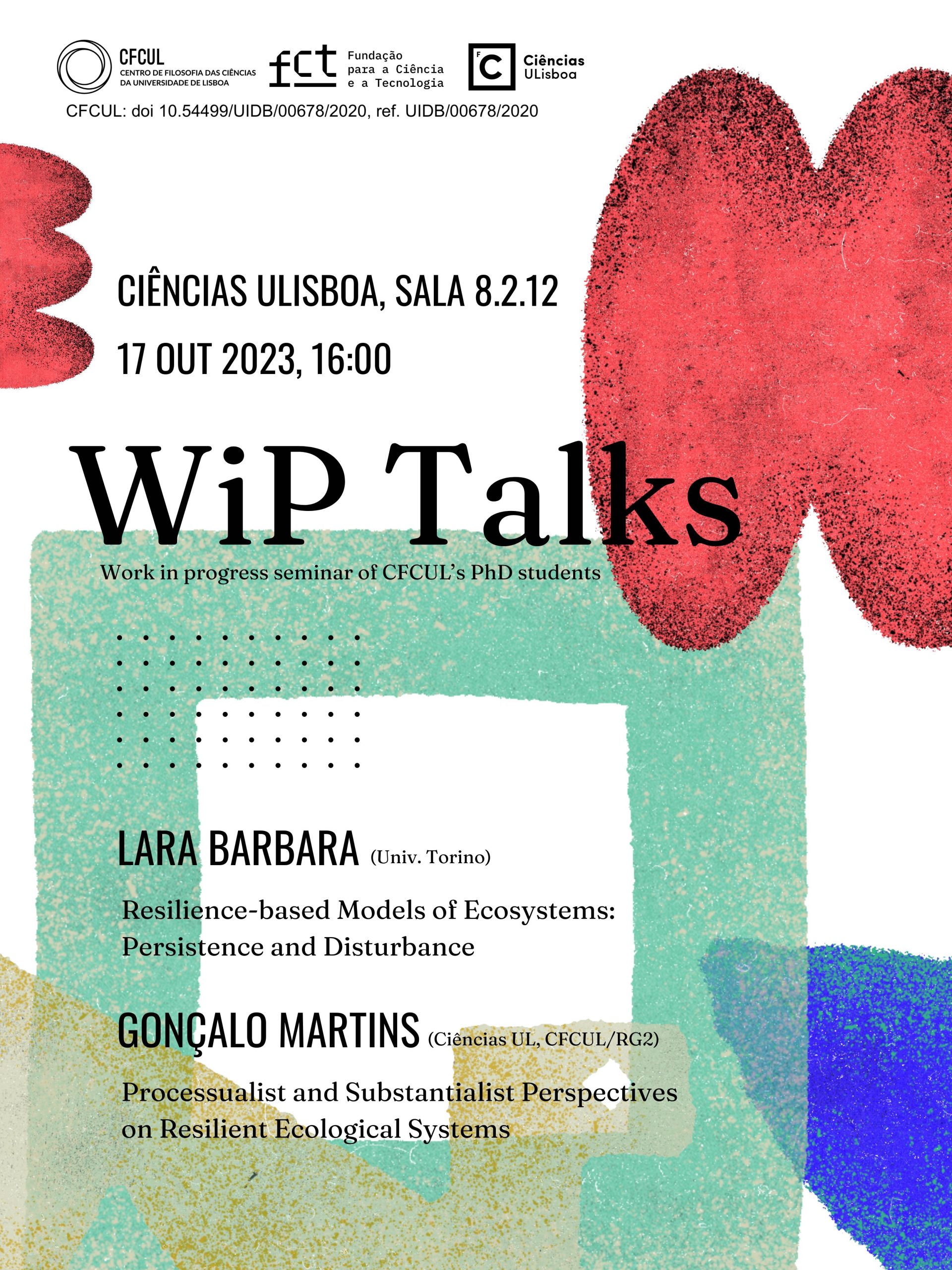
Work in Progress Seminar of CFCUL’s PhD Students
Lara Barbara
“Resilience-based models of ecosystems: persistence and disturbance”
Today, resilience is an ecological concept that has grown in importance since its introduction by Holling in 1973. Since then, however, scientific research on resilience has proliferated, resulting in ambiguity due to its multiple uses in different disciplines and contexts. As the concept is generally used in its abstract sense – i.e. “the capacity of a system to persist in the face of disturbance” – the components of the general definition should be specified in order for this concept to be a useful tool for scientific practice. In ecology, resilience-based models of ecosystems would indeed represent a viable alternative to outdated equilibrium-based models. The talk will therefore present a tentative proposal for the specification of system, persistence and disturbance in the context of ecology.
Gonçalo Martins
“Processualist and Substantialist Perspectives on Resilient Ecological Systems”
During the past few decades Ecology has understood ecosystems as being composed of discrete entities, i.e., objects, according to a substantialist approach, and has described these components with constant parameters in its models. In order to attain a more explanatory framework, a processualist approach to ecosystems should be explored, in which their component objects are conceptualized as processes. In this perspective, the persistence of the organismic community within the ecosystem is based on its capacity to adapt to perceived environmental changes, through complex energetic processes of reconstruction and physiological adjustment. This processualist point of view is closely related to the concept of ecological resilience, which argues that the stability of ecosystems is explained through their ability to absorb or tolerate change.
Zoom
https://videoconf-colibri.zoom.us/j/91595428671?pwd=eC8zcTNkNVh6LzlmK01qSlIvSXNEUT09
Password: 300982